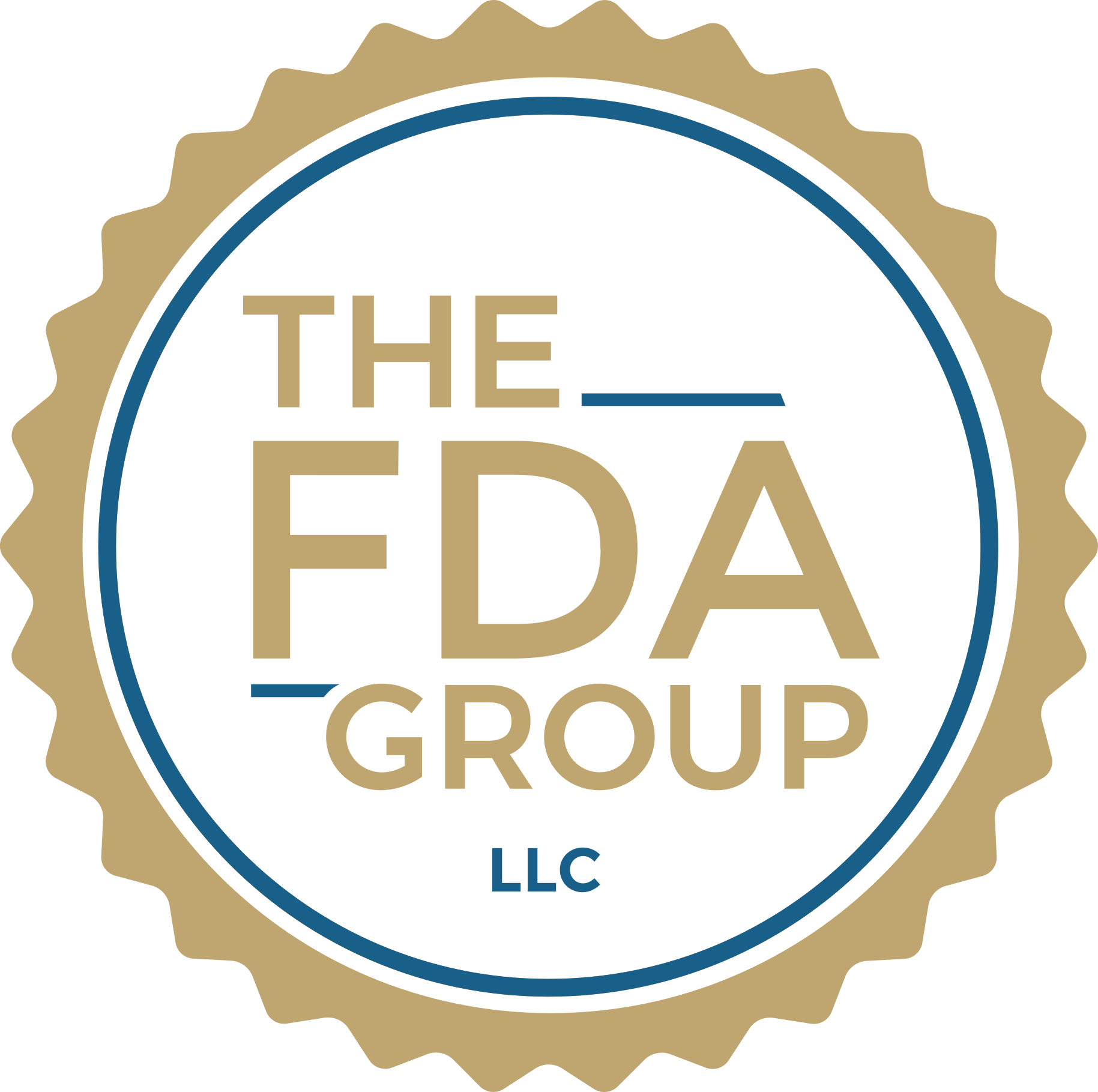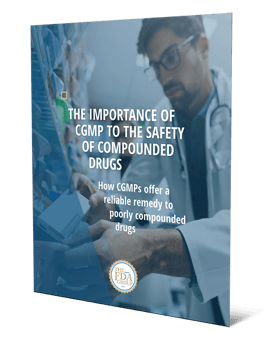In a recent statement, FDA Commissioner Scott Gottlieb, M.D., outlined the steps the agency is taking to ensure the quality of compounded drugs while enabling access to patients in need.
In addition to revising a draft memorandum of understanding (MOU) aimed at increasing the proportion of drugs compounders may ship interstate, the announcement includes critical information for both traditional compounders and outsourced compounding facilities (those registered with the FDA to comply with guidelines under section 503B of the FD&C Act).
In short, traditional compounding facilities will likely come under greater scrutiny from state agencies. The data collected will then be used by FDA to prioritize risk-based federal inspection and enforcement. Outsourced compounding drug facilities will be accountable for meeting current good manufacturing (CGMP) requirements via a risk-based approach with less-stringent requirements for low-risk products to encourage compounders to register and operate as outsourcing facilities.
In addition to clarifying regulatory expectations, the statement makes clear the agency's commitment to maintaining a "robust" inspection and enforcement program for both 503A and 503B facilities. This is underscored by the worrying trend of regulators continuing to find compounding operations that present what they see as "serious public health risks."
We've summarized the key points of the new guidelines below as well as important information regarding CGMP compliance for facilities interested in pursuing 503B registration and those that are already registered.
Grab our free white paper and learn how to apply CGMP to ensure your compounded products are safe and compliant ⤵
The Importance of CGMP to the Safety of Compounded Drugs
Key Points for 503A and 503B Compounding Facility Oversight
1. Risk-based FDA inspection and enforcement of traditional pharmacies based on state-reported data
"Our expectation is that the states will continue to have day-to-day oversight over traditional compounding pharmacies and physicians located in their state, and that the information that the FDA obtains from the states will enable us to focus our inspection and enforcement resources pertaining to traditional compounders based on risk." - FDA Statement
2. A forthcoming revised draft guidance that describes examples of insanitary conditions that the FDA continues to identify repeatedly during inspections
"...one issue that’s been especially concerning to the FDA is that we continue to identify insanitary conditions during many inspections of compounders. These conditions present a serious public health risk. This fall, we plan to issue a revised draft guidance that describes examples of insanitary conditions that the FDA has identified during inspections.
These conditions include mold growth and animal hair in areas where sterile drugs are produced. The revised draft guidance will incorporate revisions to address concerns that stakeholders have raised, such as implications for practitioners who compound drugs solely for individual patients in their offices. It’s our hope that this guidance will help promote voluntary compliance by compounders and assist states in identifying insanitary conditions during inspections." - FDA Statement
3. A forthcoming proposal for a flexible, risk-based approach to CGMP for outsourcing facilities
"Further, entities that are registered with the FDA as outsourcing facilities are also subject to CGMP requirements. In the coming months, the FDA intends to issue a revised draft guidance, for public comment, describing our policies concerning CGMP requirements for outsourcing facilities. One aim of our guidance is to make it more feasible for compounders to become and operate as outsourcing facilities. So we are proposing a flexible, risk-based approach to CGMP for outsourcing facilities under which we generally would not intend to apply all of the same requirements to lower risk products, or smaller volumes of products, that are produced by outsourcing facilities.
By pursuing a flexible approach, our hope is that more pharmacies can find it more feasible to become outsourcing facilities. It’s important to tailor our application of these manufacturing requirements to the nature of the operation, while maintaining the minimum standards necessary to protect patients from the risks of contaminated or otherwise substandard compounded drug products. If more pharmacies can become outsourcing facilities, it will promote greater physician access. Outsourcing facilities are, among other things, able to compound and distribute drugs for “office stock,” without first receiving patient-specific prescriptions, under increased quality standards, routine federal oversight, and other important conditions." - FDA Statement
4. "Vigorous oversight" though a "robust" inspection and enforcement program
"As we implement the compounding provisions of the law, we also maintain a robust inspection and enforcement program. Through our vigorous oversight, we seek to make sure that the compounders that we inspect are operating within the framework that Congress created for “traditional” pharmacies under section 503A and outsourcing facilities under section 503B, and that they aren’t compounding drugs under conditions that could cause contamination or otherwise lead to harm. Unfortunately, we continue to encounter compounders whose operations present serious public health risks.
Sometimes, these involve situations where the compounders have already been warned to correct violations of law. We take our obligations in this area seriously. We’re committed to pursuing measures that promote greater safety. This field is in need of vigilant oversight. In such cases, it’s crucial that the FDA, in collaboration with the Department of Justice, act quickly to protect patients. So, we’re working to streamline our operations to expedite enforcement actions against compounders that threaten public health. We’ve made important progress over the last few months on putting forth and implementing more effective compounding policies." - FDA Statement
Is Your Facility Prepared for a Risk-Based CGMP Inspection?
For 503B outsourcing facilities, this announcement underscores the importance of taking a fully risk-based approach when bringing your organization into (and maintaining) CGMP compliance.
A major first step in this process typically includes a risk-based impact assessment as part of a broader GMP audit. When performed correctly, this process will determine the impact on product quality based on new or changes in equipment, components, facilities, process, and/or systems in order to avoid a mandatory assessment typically prompted by the FDA Warning Letter excerpt below.
"FDA strongly recommends that your management immediately undertake a comprehensive assessment of your operations, including facility design, procedures, personnel, processes, materials, and systems."
While such an assessment has many components, the basic process can be summarized into three main steps:
- Define the concept and process of your impact assessment in an SOP.
- Develop a method that clearly and consistently identifies the risk associated to equipment, components, facilities, process, and/or systems.
- Focus your assessment on the intended use, product impact, and patient safety to minimize or redirect the workload and focus effort based on criticality.
For organizations without the resources, processes, or personnel to conduct a facility-wide assessment of this size and scope, a skilled and experienced outside consultant can conduct an effective and efficient CGMP audit to identify critical needs and produce and assist in executing a remediation program to bring the entire facility into CGMP compliance.
Learn more about our Auditing and Remediation services or contact us to discuss a tailored CGMP program for your facility today. Our large staff of former FDA and industry experts draw on extensive experience and a thorough understanding of the regulatory environment to help compounding pharmacies with the pressing compliance and quality needs of today's changing regulatory environment.
Browse other helpful resources:
• The Importance of CGMP to the Safety of Compounded Drugs: A White Paper
• 503A vs. 503B: A Quick-Guide to Compounding Pharmacies
• Compounding Pharmacies and GCMP: A Primer
• What You Should Know About Compounding Pharmacy Laws
Grab our free white paper and learn how to apply CGMP to ensure your compounded products are safe and compliant ⤵



